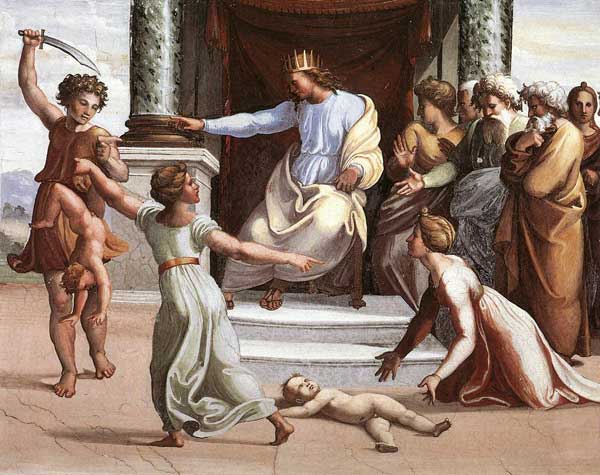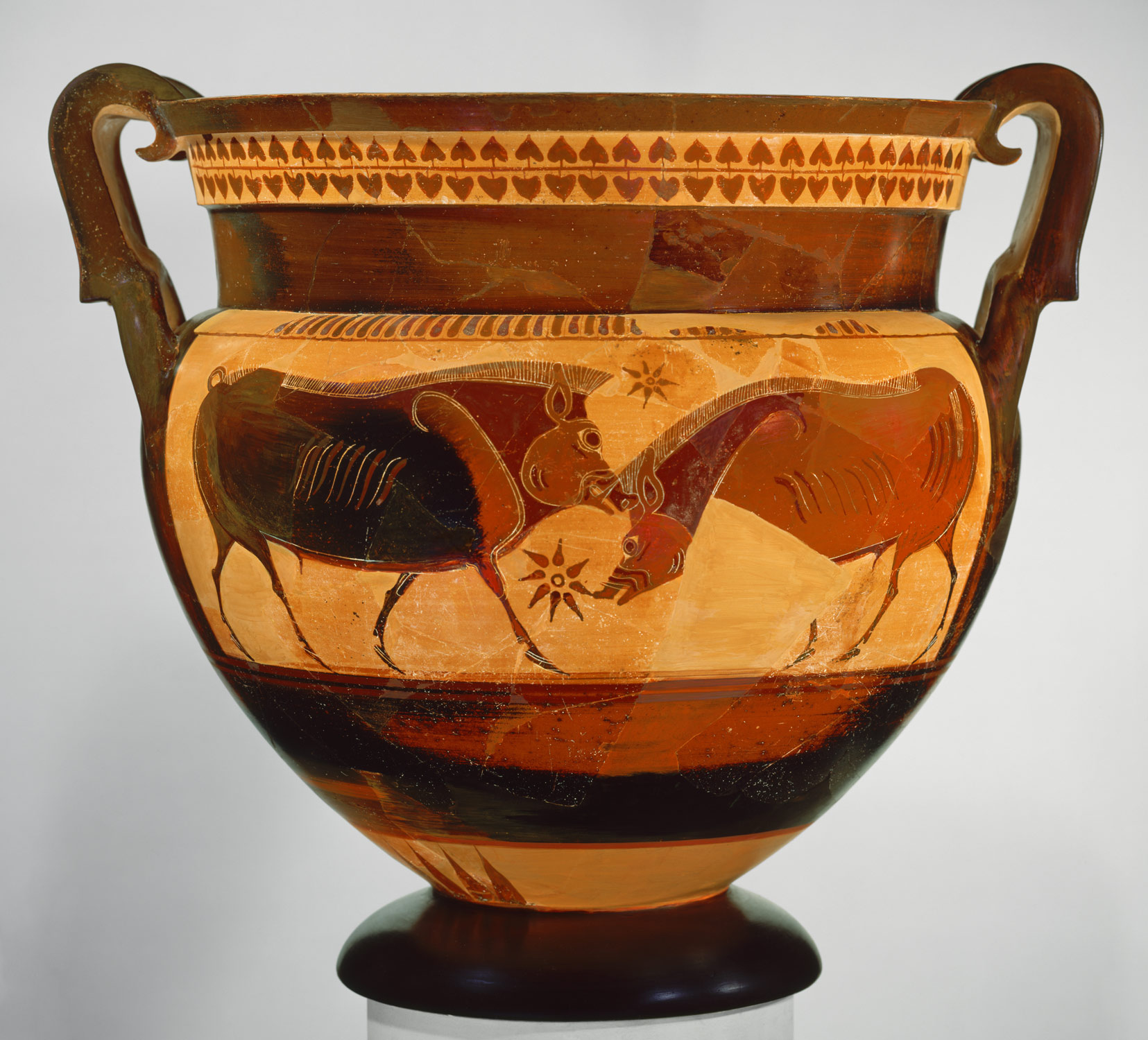Who will answer?
What is the reward of "fearing God" and "following Wisdom"? The reward is life eternal, life that is full and meaningful.
1 Kings 2:10-12; 3:3-14
The first section of this reading alerts us to the fact that wisdom (Solomon's prayer for which is to follow) has at least two aspects: 1) the succession of generations (generally speaking: children are unlearned, unskilled, impetuous, and foolish, whereas parents are learned, skilled, self-controlled, and wise); and 2) the Way of the Lord (which is the wise path). Solomon respects both the example of his father and the precepts of the Lord. Solomon is wise even before we get to his prayer. (One might say that only the wise know to pray for wisdom.)
Solomon loved the Lord (loving and fearing or reverencing are kin) and (so, therefore) walked the same wise path his father David had. Solomon sacrificed a thousand burnt offerings to the Lord. (He showed wisdom in his moral, ethical, religious behavior, see below.) The Lord then appeared to Solomon in a dream (dreams are a sign of the Spirit's work in conveying wisdom to people, e.g., Joseph in the book of Genesis). God asked Solomon, "what shall I give you?"
Again, Solomon displays that he already possesses wisdom in what he asks. He displays humility, another mark of wisdom (teachable), saying that the task of governing is too great for his own innate gifts. Solomon admits to being a child (unwise) and claims that the task is too important for him to fail. Others depend on his ability to make good decisions. Thus Solomon prays for a "wise and discerning mind," which clearly he already possesses. God is pleased with his prayer, and grants him all the desire of his heart.
In 1 Kings 3:28, we see the king's prayer answered in practical terms, by the wide approval of his judgment in a tough court case.

(King's Solomon's decision. Image Source, http://pendulumopinions.files.wordpress.com/2009/04/solomon1.jpg)
Proverbs 9:1-6
Wisdom
The word (chakmot) (Proverbs 1:20, 9:1, 24:7) is a later Hebrew form that appears at first glance to be plural (f.), but the -ot ending is more likely an indicator of abstraction. In other words, we are to think of "the overarching concept of wisdom" or "wisdom in the abstract"--or perhaps something almost akin to "wisdom personified" (See Job 28 and Proverbs 8, where Wisdom is a she.) (There is a similar distinction, easily confusing, between Hebrew mamlekah, or mamlekuth [often a particular king's reign or kingdom], the latter perhaps a confusion of the two words, and melukah, malkuth [kingship itself]). Wisdom is a key word in the Old Testament, and one which it pays readers of the Bible to know in the full breadth of its spectrum of meaning:
- Technical skill in the exercise of some activity: e.g., art, music, architecture, building trades, war, or work. The sort of thing you would learn in a Vocational-Technical School.
- Administrative ability. The sort of thing you encounter in the best of mayors and governors and plant managers. Ability to arrange things so that the trains run on time.
- Creativity in the arts. The ability to think "outside the box" in other areas of life, to problem solve, to come up with new solutions for old problems.
- Savoir-faire, the ability to read and respond to any situation, to do or say what is appropriate to the occasion. The ability to avoid unacceptable and inappropriate social behavior. Also experience or political savvy, the ability to "read" the social context and know what is acceptable or unacceptable to the group.
- Cleverness or shrewdness, especially in business or financial affairs. The ability to make a buck.
- Sophistication or worldly wisdom, broad experience of the wider world, foreign cultures and learning, and the like.
- Prudence, the ability to foresee and avoid gaffes and mistakes.
- Ethics, decision making that is guided by religious and moral principles. Piety.
The Bible is everywhere clear that God is the source of all wisdom, that wisdom is the tool God used to create the world, and that all human wisdom is less than, and derivative of this divine source. (See Romans 11:33-36, 1 Corinthians 2:16, etc.) The Bible is also everywhere clear that the starting point, the first step or rung, the foundational footing for Wisdom is "the fear [reverence] of the Lord" (Job 28:28, Psalm 111:10, Proverbs 1:7, 9:10, and 15:33). This Wisdom is exemplified by the actions of kings like Solomon and, ultimately, by the ideal reign of the anointed one (messiah, e.g., Isaiah 11:2). The wisdom of God is to some extent revealed (in as much as all people have some sort of wisdom, the wisdom of God is at times only obvious) and to some extent hidden (in that all humans are to some extent and in some areas of life, foolish). When God's wisdom is known to humans, it is a gift, not something earned. Wisdom cannot be gained by pulling on one's own bootstraps. God's full plan, the full extent of God's wisdom, is known to no one and cannot be discovered by the most persistent searching. Not even such powerful forces and mysterious places as death or hell have access to the password for God's store of Wisdom.
Where Wisdom is personified, she is an attribute of the divine wisdom, an attribute of God that is seen in the foundations of the earth, the heights of the skies, the depths of the seas, the innumerable stars, sands, and clouds. She was begotten before the world began; she was birthed to be God's architect and God's blueprint maker for the greatest project of all, the design and construction of the created world, the universe. Wisdom is a professor, a public intellectual, an easily accessible teacher for anyone who will listen on the public airwaves or in the public square. She is inspiring in her presentation, never dull or boring. (The ruach, or Spirit, of God is the "inspire-er" of all human wisdom--the conduit for divine wisdom to humans. This association of wisdom with the spirit is also responsible for the notion that God reveals things to people in dreams.) When Wisdom teaches, even fools learn, kings give good decrees, musicians, artists, and writers create their best works, classics and masterpieces are born.

(When thinking of Wisdom's home, we should envision the temple, e.g., Herod's rebuilt temple in Jerusalem. Image Source, http://www.bible-architecture.info/4.The_16.jpg)
Wisdom's house is quite large and steady. It has seven pillars (Proverbs 9:1). If we are to think of 7 "courses" of pillars, as in Solomon's house (1 Kings 7:2), with it's four courses of pillars topped by cedar beams, then Wisdom's house is larger and more stable even than Solomon's. Whether of stone (the Jerusalem temple) or wood (the tabernacle in the wilderness), these pillars are "hewn" or "cut" and placed with human skill (or "wisdom"). Seven being the number of metaphorical fullness or perfection, perhaps we are to think of an even grander scale and see Wisdom's pillars as the foundations of our world (e.g., 1 Samuel 2:8, Job 9:6, Psalm 75:3), which are always held in place (or shaken, when they shake) by God.
Wisdom's place is one of great hospitality. She has prepared the meat herself, from farm to fork.

(Lamb chops, the food of sacrifice and altar. Image Source, http://www.bbcgoodfood.com/recipes/3678/images/3678_MEDIUM.jpg)
She has mixed the drinks.

(A vessel for mixing wine and water. Image Source, http://www.metmuseum.org/toah/images/hb/hb_1977.11.2.jpg)
She has set the table.

(Image Source, http://www.whitehousemuseum.org/floor1/blue-room/blue-room-2002-dining.jpg)
Wisdom issues her invitation.

(Image Source, http://www.custodiansofhistory.com/images/LBJ%20%20White%20House%20invite.jpg)
To those who are not yet wise, she extends an invitation. Come, all of you who are simple and senseless, still immature, and let me fill you up. Come, eat the bread and wine that I've set out. If you eat my bread and drink my cup, you will live. You will become mature. You will gain insight.
Psalm 34:9-14
John 6:51-58
Christ, the Word of God, is the logos, or Wisdom of God. (John 1:1, etc.) In John 6, Jesus extends the invitation to Wisdom. Whoever eats the flesh of the Son of Man and drinks his blood will live. The sort of life Christ gives is the same sort of gift Wisdom brings; it is more than mere existence. It is life characterized by the panoply of Wisdom's characteristics (the bullet list above). Christ, the very Wisdom of God, is considered foolishness by the world (1 Corinthians 1:21-24). The only way to Wisdom is to accept his invitation.





No comments:
Post a Comment
Pastor Greg appreciates your comments on this week's scriptures!